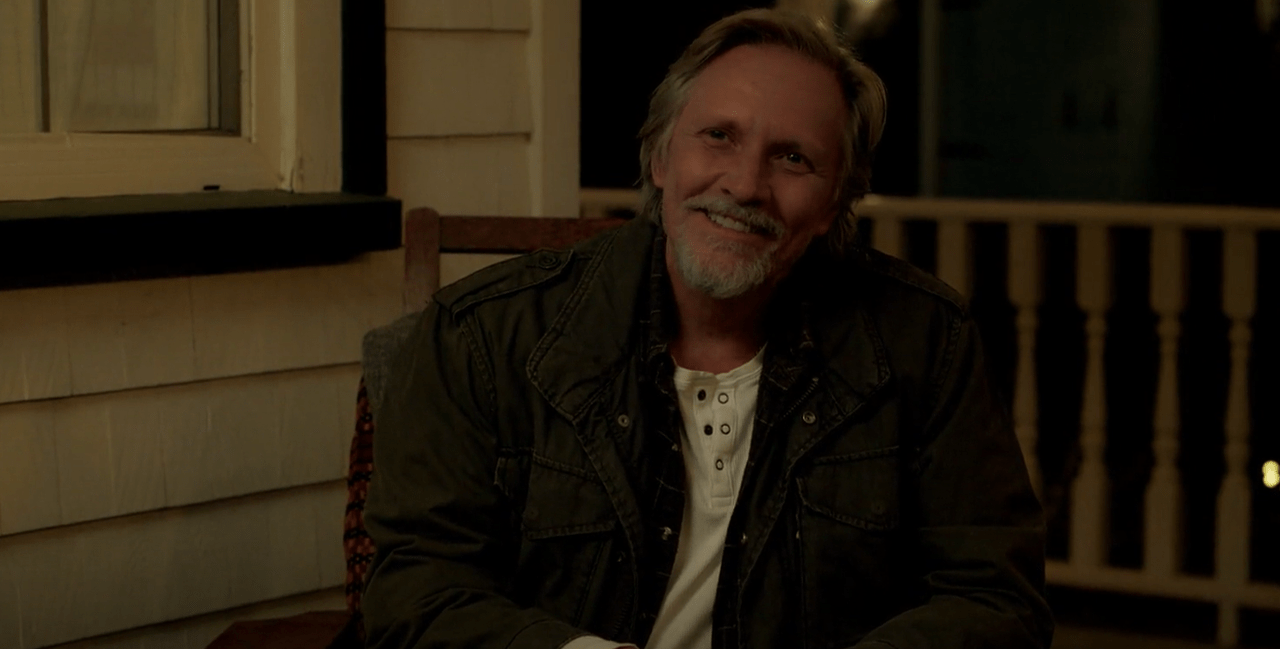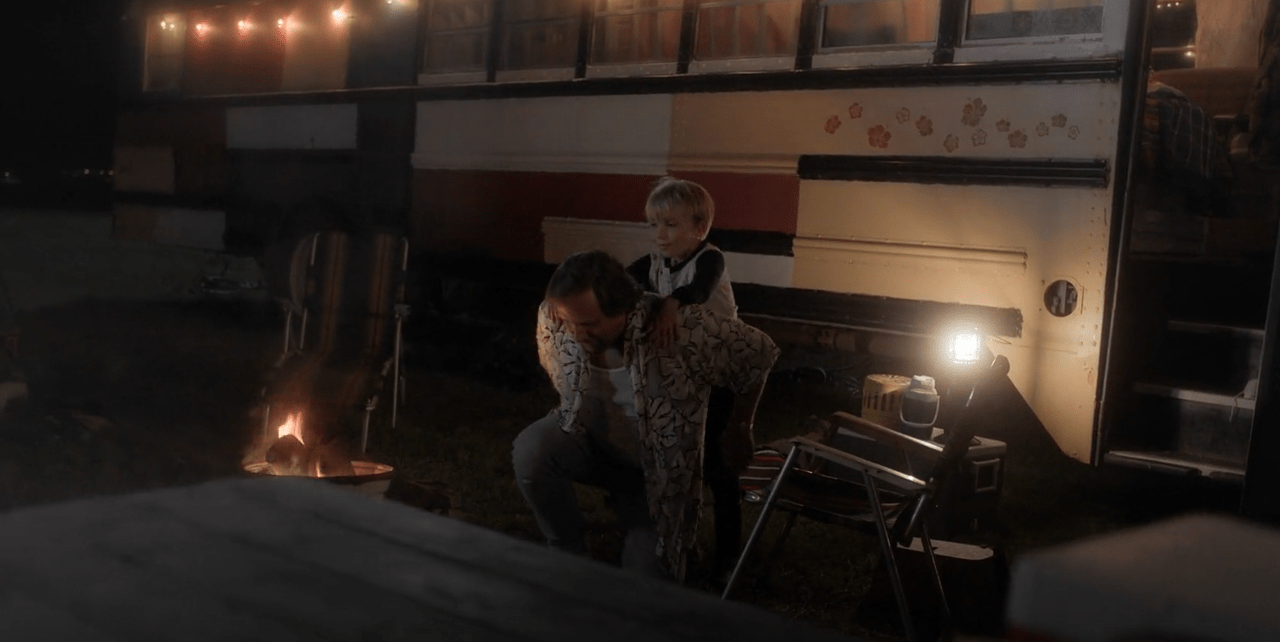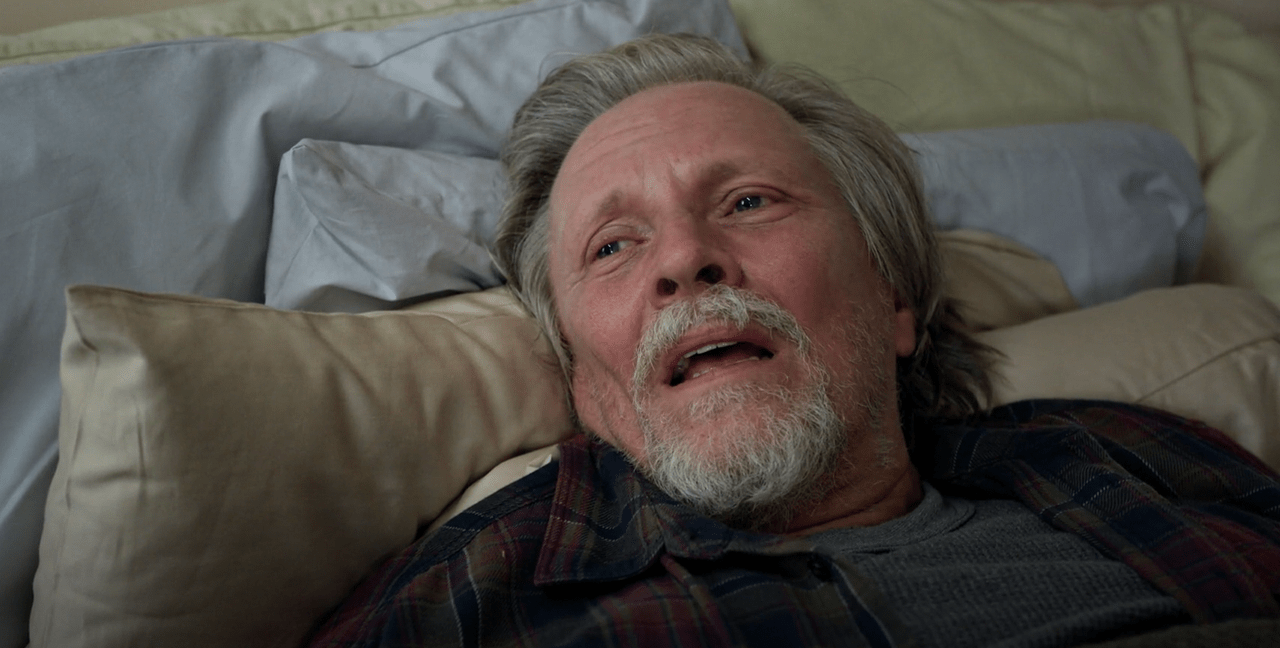While ‘Sullivan’s Crossing‘ primarily centers around the life of Maggie Sullivan, a neurosurgeon who returns to her roots in Timberlake, the story is also enriched by its supporting characters, all of whom have their unique set of circumstances. The core theme of the narrative is about bridging generational differences through love and understanding. While Maggie learns to follow through on that principle gradually, her partner, Cal Jones, struggles to do the same. This is, in large part, due to his strong alienation from his family, and particularly his father. Cal’s refusal to confront his emotions with honesty begins to take a toll on him, before actively affecting his relationship with his loved ones. A deep dive into his past reveals the source of his anxieties, which in turn serve as a springboard for some of the show’s most emotional beats. SPOILERS AHEAD.
Jed Jones’s Schizophrenia Deeply Affects His Dynamic With His Son
While it is revealed in season 2 that Jed Jones, the father of Cal Jones, is a person with schizophrenia, his condition doesn’t take center stage until the third season. Cal has broken off his ties with his family as a reaction to his difficult childhood of dealing with his father’s complex illness, and is not pleased when his mother, Clarissa, calls him up to meet with the family. Cal shows clear signs of the long-term effects of trauma when a bout of physical exercise triggers a memory from his past, when his father, in a paranoid episode, forced him to train hard to fight his enemies. Cal also reveals to Maggie that his father refused to take medication, and as a result, the family constantly had to be on the run. All of these factors, coupled with his mother always siding with her father, led to the present, with Cal having bitter feelings about his family.

What Cal doesn’t know, however, is that Jed’s actions at that point were merely a result of the restrictions his mental health condition placed on him. Maggie learns from her experience with her father, Sully, and urges Cal to hear the full story, and it is here we learn why Jed refused medication during the peak of his schizophrenia. It turns out that the medications available in the past had an adverse side effect. They tempered his erratic outbursts and hallucinations, but also left him completely sedate. As a result, Jed is forced to choose between playing an active role in his children’s lives and being better, but distant. This puts his previous actions in a new light, as even in his most trying moments, he had a sustained wish to be there for Cal. While it is a selfish decision on Jed’s end, Cal nonetheless grows to empathize with his father.

Cal’s trauma also takes on more abstract forms, such as his refusal to have children, out of the fear that they could end up having schizophrenia down the line. This fear also becomes central to the arc of his sister, Sedona Jones, who suffers from vivid hallucinatory symptoms over the course of season 2. Fearing that she has schizophrenia, she and her brother fall into despair, only for them to eventually learn that her symptoms are the result of a curable form of tumor on her brain. However, the same cannot be said for Jed, and as such, Cal’s fear about repeating the cycle started by her father continues to play an important role in informing his character. For much of the story, Cal is an avoidant person who creates distance between himself and his loved ones, in fear of harming them in any capacity. However, he learns to deal with this through his relationship with Maggie.
Cal Ultimately Reconciles With His Father
Things take a turn for the worse when it is revealed that Jed has terminal cancer, with only a few months left in his life. Mirroring his decisions from the past, Jed chooses to refuse treatment and instead embraces this as the natural end of his life. This is also strengthened by the arrival of Maggie, with Jed acknowledging that he is confident that his son will be well loved in his absence, thanks to her. Over the course of a few episodes, the two characters develop a powerful bond based on their shared love for Cal, as well as their anxieties about the most difficult points in life. Jed’s cancer also serves as a wake-up call for his son, and while they still struggle to work out their differences, Cal returns to showing care for his family. There is also a deeper dimension to his avoidant behavior, born out of the fear of having to say goodbye to them, just like he had to for his deceased wife, Lynne Baxter Jones.

Cal’s change of heart begins with him remembering the time his family lived in a converted bus. One night, he woke up from a bad dream, and his dad comforted him by promising to deal with the figurative monsters before giving his son a piggyback ride. The memory serves as a reminder of the positive memories he has about his father, and prompts him to finally have a heartfelt conversation with him. Bringing the story full circle, Cal brings up how he has been running from monsters of his own and apologizes for his lack of sensitivity towards his father. With this great burden off his back, Jed finds the courage to lead the rest of his life without regrets. To that end, he declares that he will have one final adventure with Clarissa: a trip to the Grand Canyon. This time, Cal is supportive of the decision, which shows his growth as a character.
Read More: Do Sully and Helen Get Together? Is Scott Patterson Leaving the Show?


